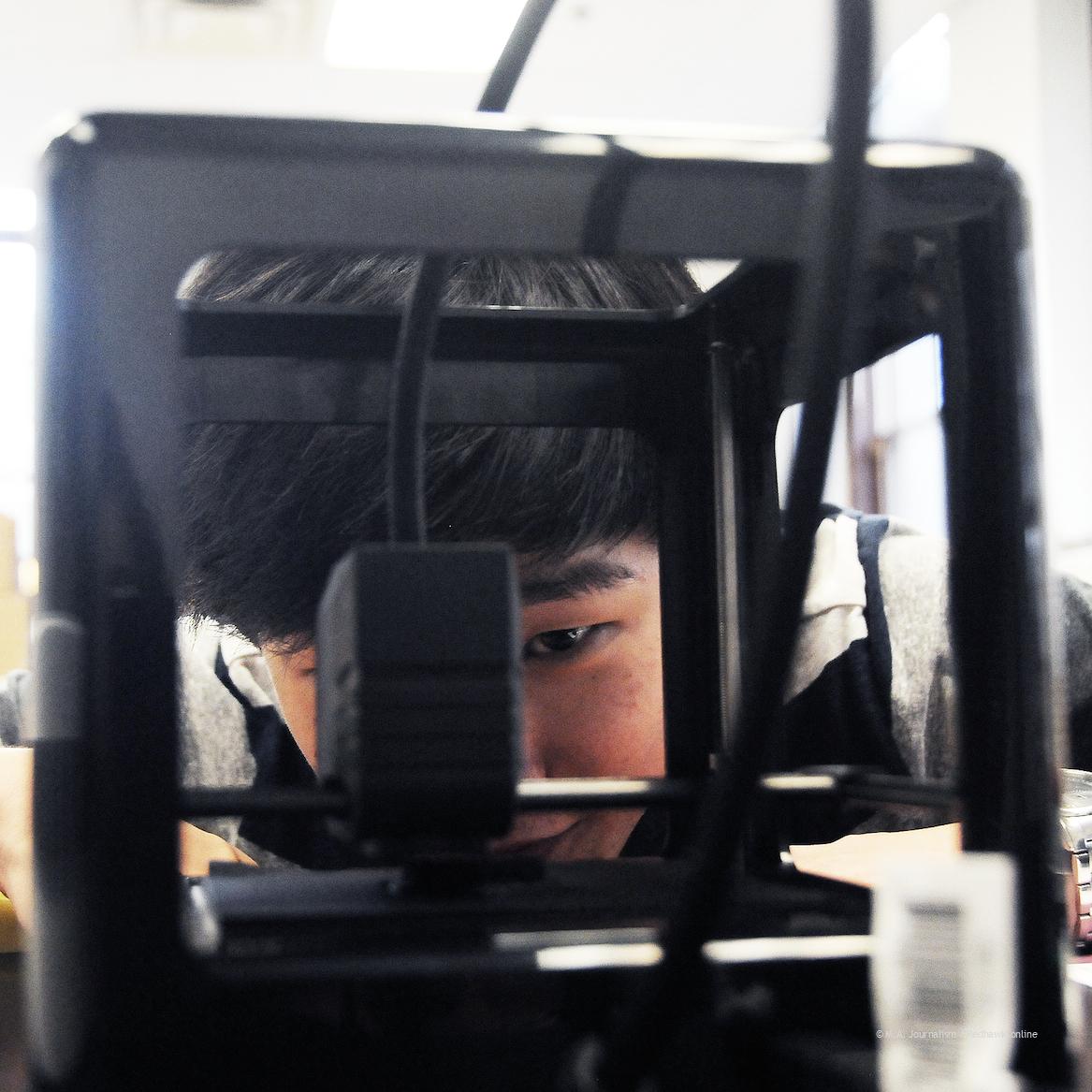The I.S.S. team reflects on their journey after the destruction of their experiment in the launch explosion
“I was in Switzerland. It was the afternoon of the launch,” said science teacher and one of last year’s International Space Station (I.S.S.) mentors Nancy Cripe. “We got back to the hotel where we had wifi and I went to the NASA site.” Within five minutes, Cripe’s phone buzzed with a text from science teacher and I.S.S. mentor, Sam Terfa, saying, “Thought you wanted to know that our experiment blew up.” Cripe solemnly replied, “I know.”
On June 28, SpaceX’s Falcon 9 rocket carrying the Minnehaha’s I.S.S. experiment, along with 5,000 pounds of cargo, exploded soon after its launch from the Cape Canaveral Air Force Station in Florida. The experiment took eight months to create, but was destroyed just two minutes after it had launched.
“Ironically, the first moment after the explosion, I thought that the ‘poof’ we saw in the sky was the end of the first stage and we cheered because of the ‘poof,'” said Minnehaha I.S.S. team leader Andrew Johnson (’15), who along with team member, Hazen Mayo (’15), were at the air force station to watch the launch. “Only after coming inside the conference room did I sense how surreal everything got. Everyone was quiet. Then chatter started to arise only to be quieted again after Elon Musk’s (founder of SpaceX) second in command provided us with status updates regarding the ‘anomaly.'”
The rocket was flying at about 3,000 miles per hour and was 28 miles up when the explosion occurred. The explosion was caused by an excess of pressure in the rocket’s upper stage oxidizer tank, but it is still unknown what caused this. However, according to Chief Executive of SpaceX Elon Musk, it is possible that the strut holding a helium tank snapped and caused the tank to leak, therefore, increasing the pressure in the capsule.
The Air Force safety officers then sent commands to destroy the rocket to ensure public safety, but only after the rocket malfunctioned. The Falcon 9 was the 3rd failed resupply mission in eight months to the I.S.S. However, it is the first failure of a Falcon 9 rocket after 18 past successful launches.
The school was offered to refly the experiment for free, but circumstances such as limited time and a nearly completely graduated team, made it unable to do so.
“Now, it’s in a million pieces somewhere off the coast of Florida, but we still learned so much,” said Cripe. She explained that in the eight months poured into the experiment, the team learned a lot of different skills, one of them especially being teamwork.
Although the experiment itself was lost, the experience was not.
“I learned that a journey isn’t necessarily all about the destination,” said Mayo.
She said that although the experiment was not carried through, she still gained the collaborative and scientifically analytical skills she had set out to achieve.
“Don’t let the prospect of failing to reach your destination deter you from putting forth your best efforts,” Mayo said. “You can gain infinitely greater life skills and experiences from a bumpy journey than from a pristine arrival.”
While at the station, both Johnson and Mayo had the opportunity to speak to Buzz Aldrin, the second man to walk on the moon. “I was pretty starstruck… I’m kind of a history nerd on top of a science one… I was literally just chatting up an incredibly important piece of scientific and American history.” While the crowd of people were anxiously waiting for a chance to talk to Aldrin, he insisted on speaking to the two team members about Minnehaha’s experiment.
It seems safe to say that the team had a one-of-a-kind experience from beginning to end, from brainstorming experiment ideas in September, to talking to astronauts, to watching their creation fall back to earth in pieces.
“Finding out that the final destination for our experiment is on Earth in ashes has humbled me to the nature of experimentation in science,” said Johnson. “Even when the bonding force of the experiment was eliminated due to the explosion, experience was gained and memories reaped. I feel obligated to state that we truly had an ‘out of this world’ experience and had fun while doing it.”

